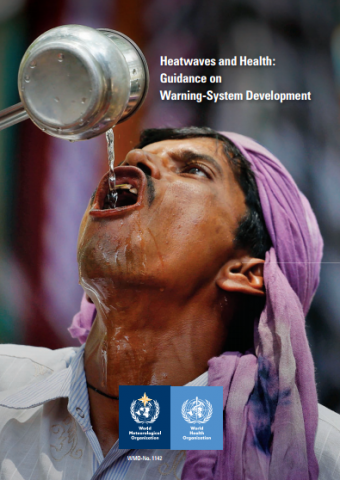Heatwaves and Health: Guidance on Warning-System Development


Heatwaves are among the most dangerous of natural hazards, but rarely receive adequate attention. They often lack the spectacular and sudden violence of other hazards, such as tropical cyclones or flash floods. Even the related death tolls are not always immediately obvious. For example, the European heatwaves in the northern hemisphere summer of 2003 were responsible for the deaths of tens of thousands of people.
The purpose of this Guidance, developed jointly by WMO and WHO, is to outline, for practitioners in both meteorological and health services, the issues surrounding the general heat–health problem and present how an understanding of the biometeorology, epidemiology, public-health and risk-communication aspects of heat as a hazard can be used to inform the development of an HHWS as part of a wider HHAP. The Guidance places emphasis on the practical aspects of an HHWS at a generic level and is not intended to be prescriptive. Specifically, the Guidance outlines the factors associated with vulnerability to heat, the approaches to developing and assessing the effectiveness of an HHWS, the range of possible intervention measures and the essentials for effective communication of the risk of heat-related health effects and associated coping strategies. In so doing, this Guidance offers practical advice to NMHSs and NHSs on initiating the development of an HHWS and helps them build capacity in planning for extreme hot-weather events.
© World Meteorological Organization and World Health Organization, 2015.
Heatwaves and Health: Guidance on Warning-System Development
http://www.who.int/globalchange/publications/WMO_WHO_Heat_Health_Guidance_2015.pdf?ua=1
